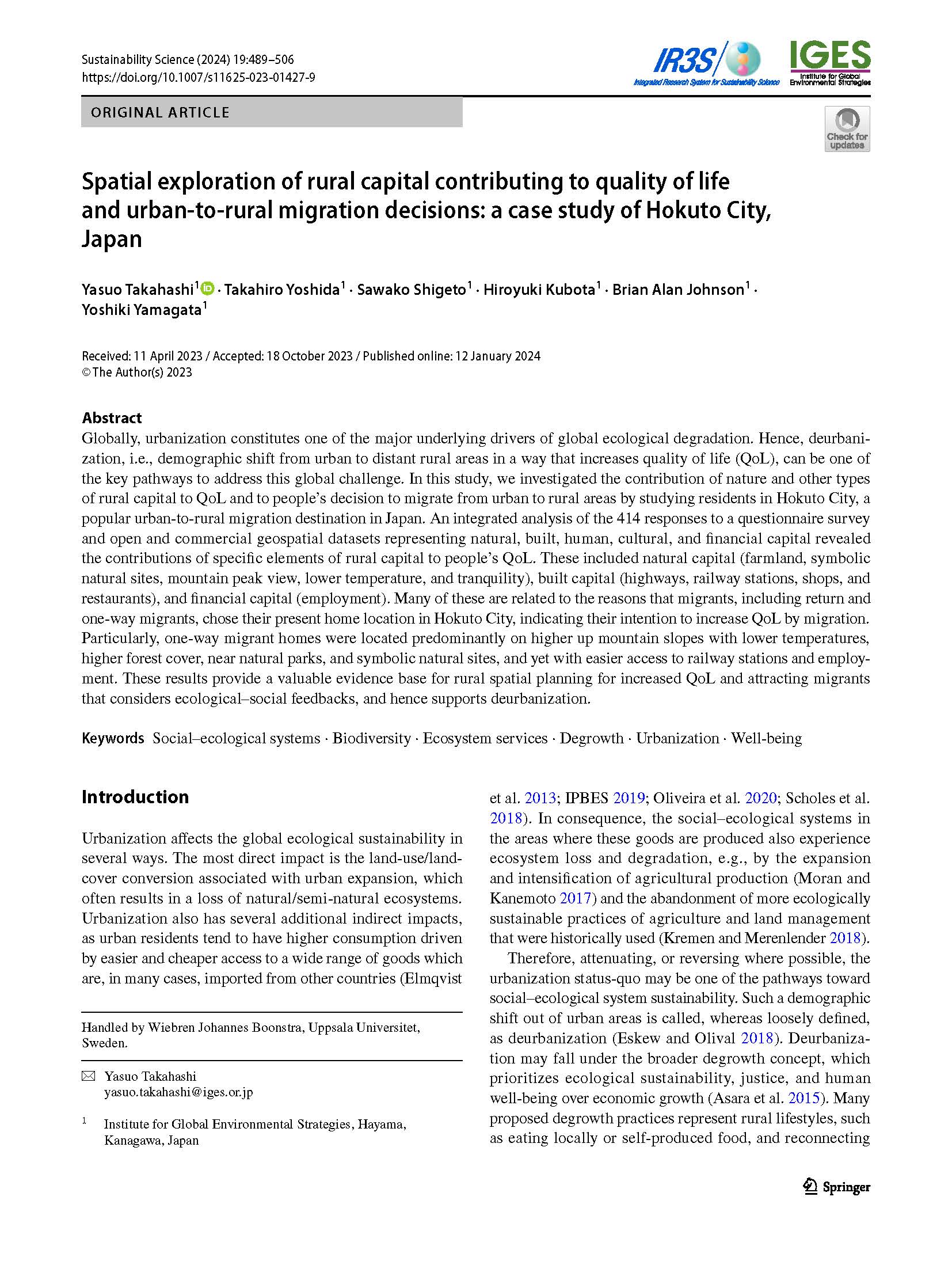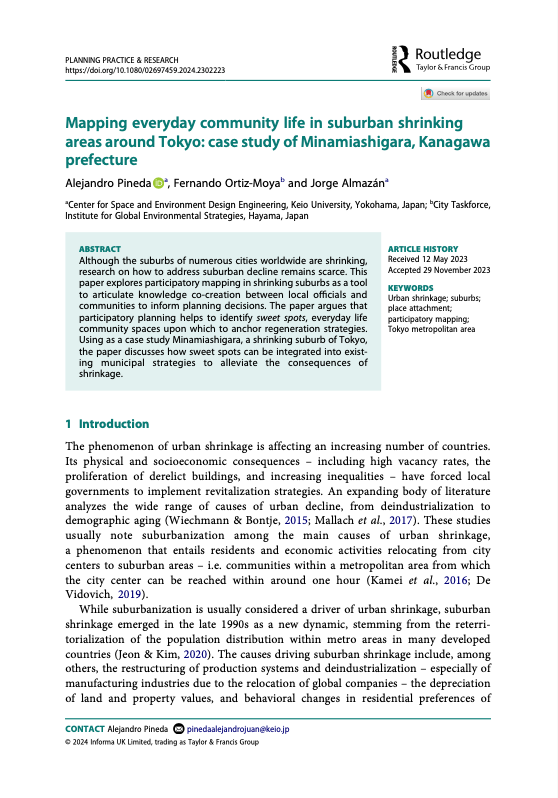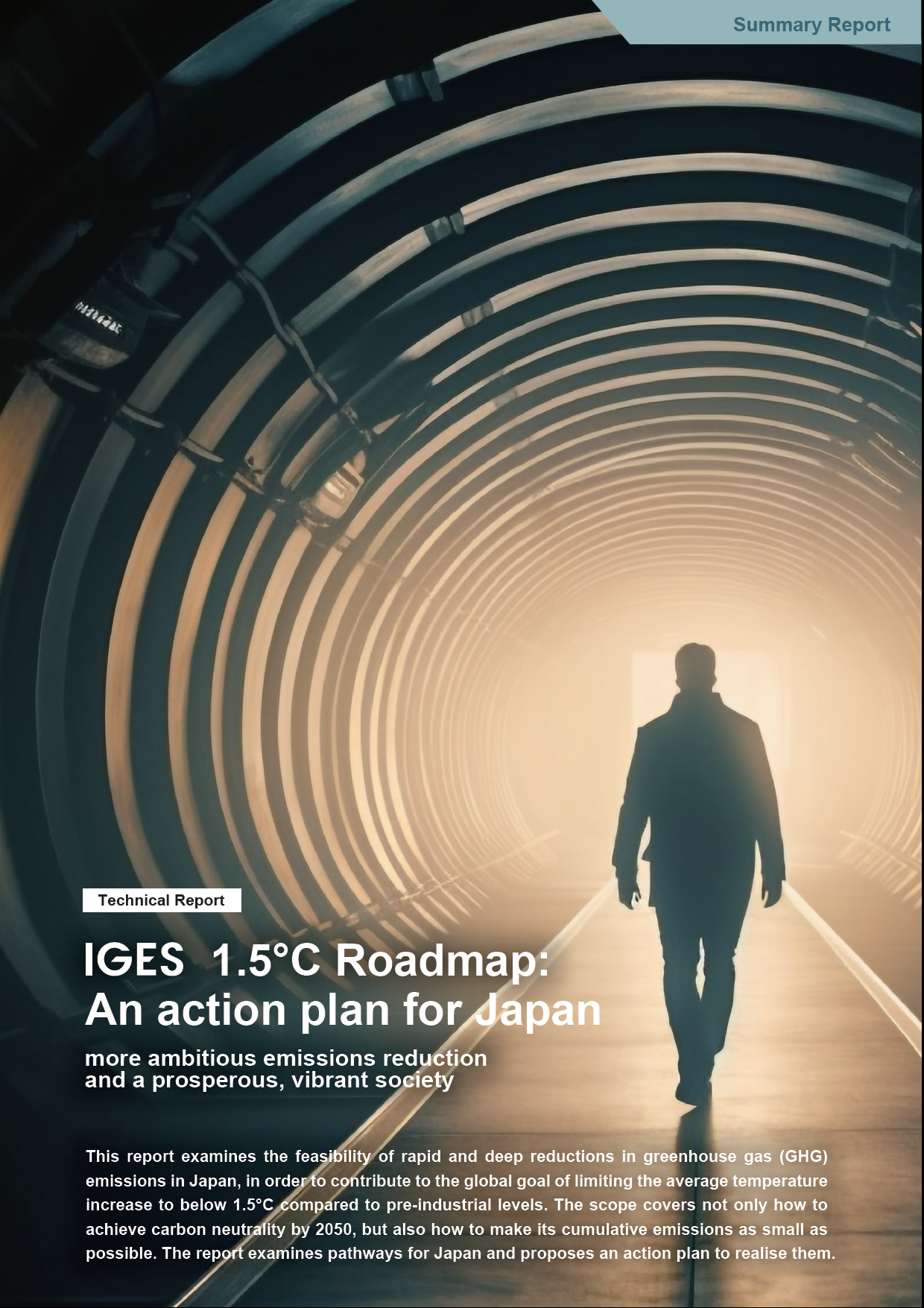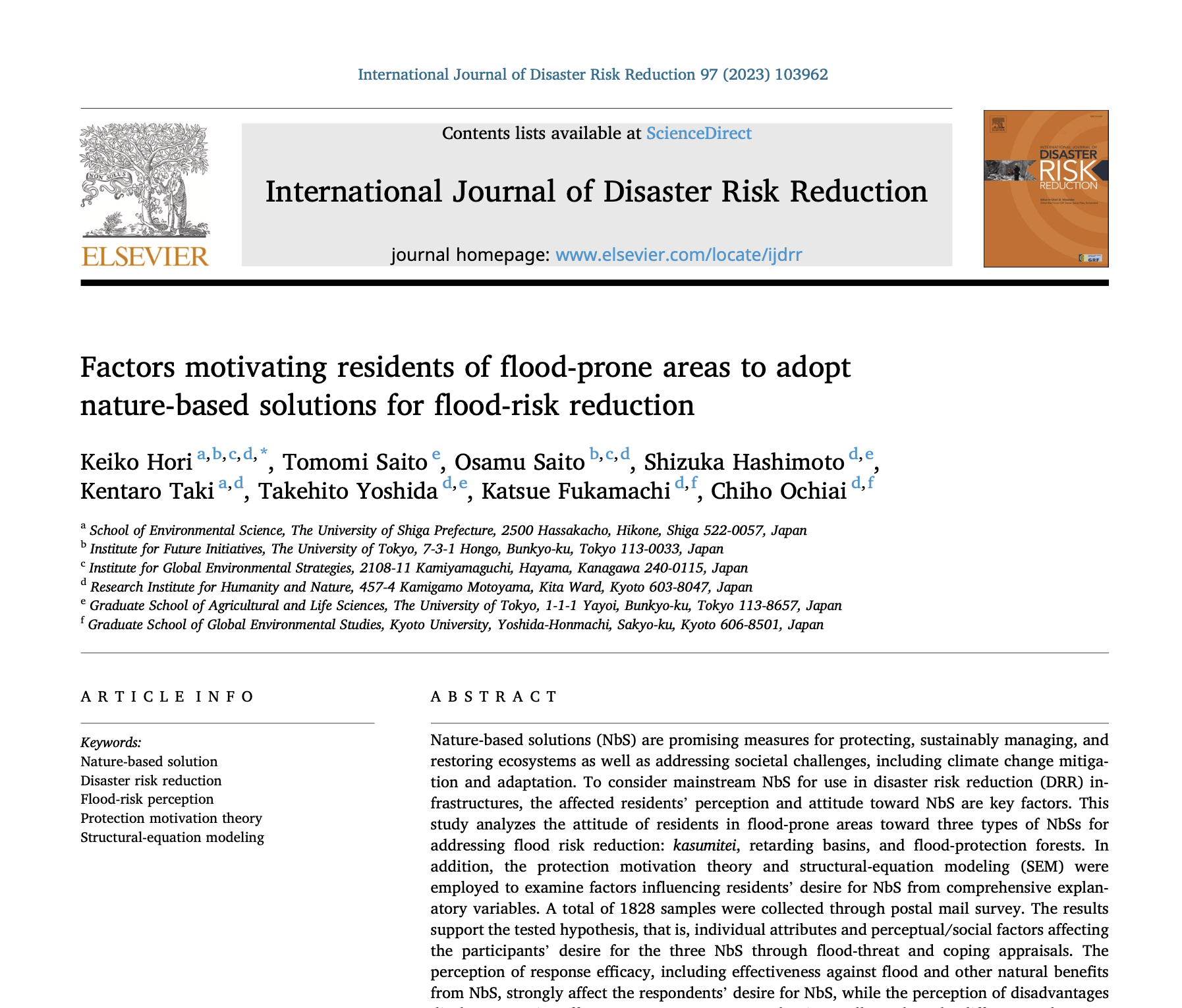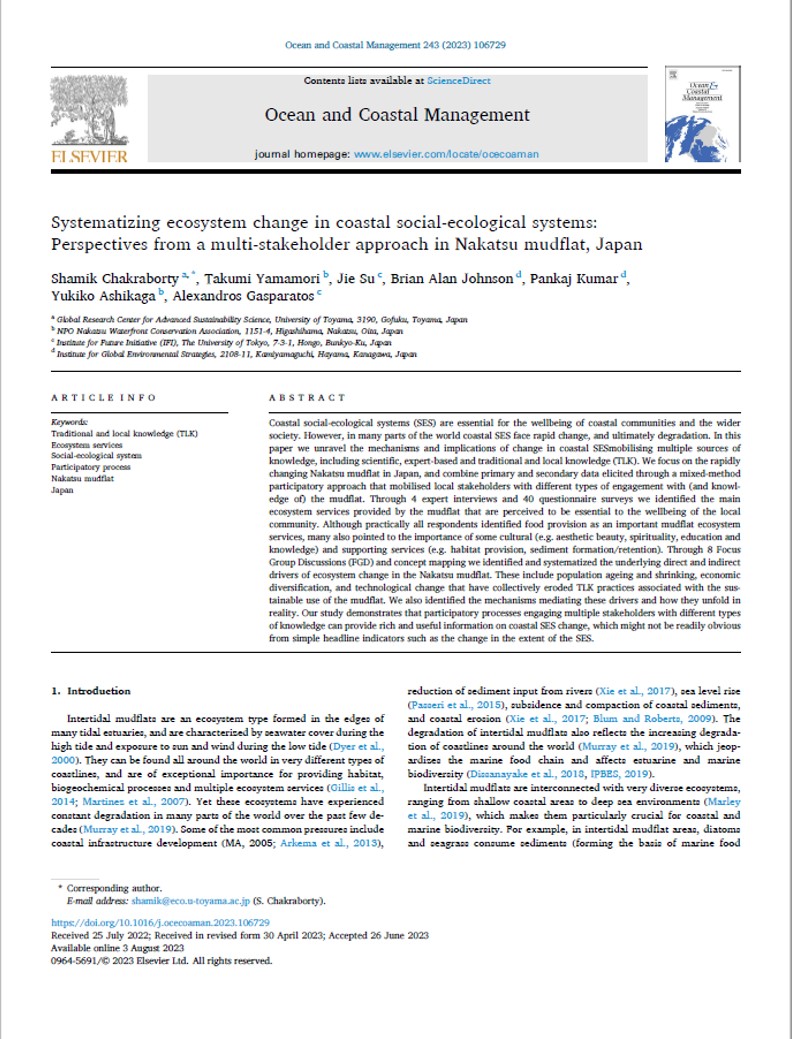In Journal of Forest Research
The Forest Environment Transfer Tax (FETT), a scheme similar to Payment for Ecosystem Services (PES), was introduced for Japanese forests at the national level in 2019 to address the challenges of climate change and promote management mainly in privately owned forests under the New Forest Management System (NFMS). Given insufficient human and...


